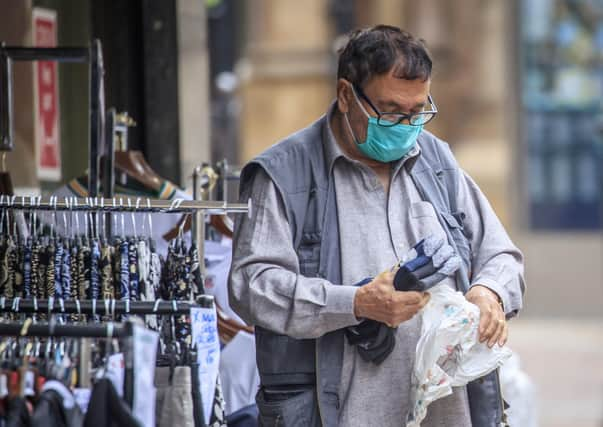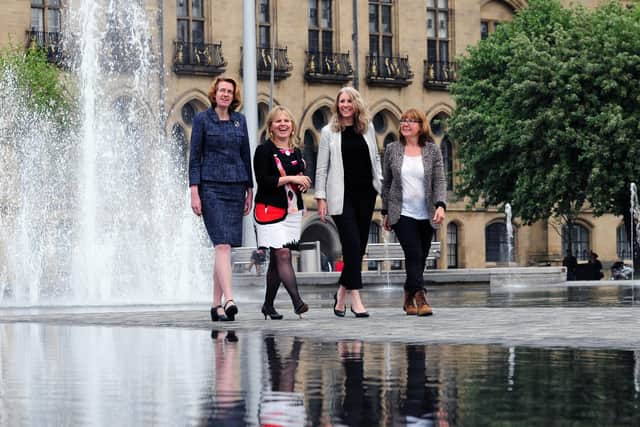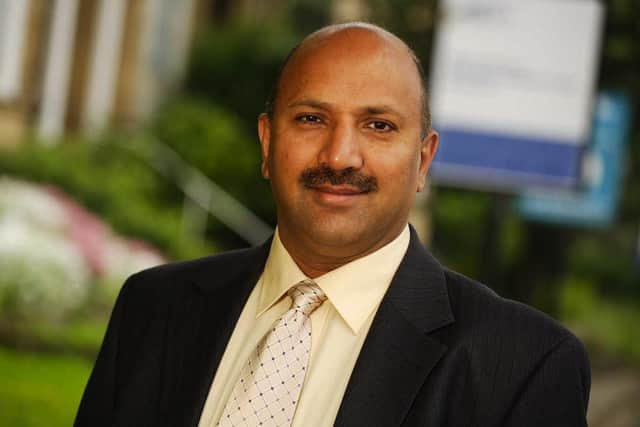Public sector must lead the way and increase ethnic diversity in workforce - Dr Mohammed Ali


This is not just because thousands of people depend on them for their livelihoods. It is also vital that staff in public-facing roles reflect the communities they serve.
How can we expect our young people to aim high if they cannot see successful role models, like teachers and youth leaders, who look like themselves?
Advertisement
Hide AdAdvertisement
Hide AdAnd isn’t it essential that social workers and health visitors have first-hand experience of the challenges faced by the communities they serve?


Government statistics show that 33 per cent of Bradford district’s population is from an ethnic minority background.
Yet a recent an in-depth report by business advice specialist Grant Thornton exploring culture and diversity at the council reveals that only 28 per cent of its staff identify themselves as BAME and 96 per cent of the most senior roles are held by white people.
Racism was one of the most common issues raised, including the use of brief and subtle daily encounters that undermine individual self-worth.
Advertisement
Hide AdAdvertisement
Hide AdBradford Council is one of five local authorities in receipt of government funding to pioneer new ways of ending segregation and bringing people of different ethnic backgrounds together in schools, neighbourhoods and workplaces.


One of the reasons that the district was chosen was that it had the unenviable distinction of being ranked the fifth least integrated of 160 places across England and Wales.
The difference in employment rates by ethnicity was the second highest in the country: 82 per cent of white British people aged 25 to 49 were in work, compared with just 60 per cent of their non-white counterparts.
Since then, the council’s Bradford for Everyone programme has explored many new ways of helping people to mix, learn from, respect and understand each other.
Advertisement
Hide AdAdvertisement
Hide AdThe problem is that this doesn’t seem to apply to the authority’s own workforce.
Since I set up QED Foundation in Bradford in 1990, with the aim of providing opportunities for all, ethnic minority staff at the council have told me over many years they felt that they had been treated unfairly at work.
I have heard that the Bradfordians of Pakistani origin, which make up 20 per cent of the district’s population, are the most under-represented across all grades and at senior levels.
There is also a strong perception that cronyism is widespread and anyone who speaks out against institutional racism risks being sidelined – it is important now that this perception is countered.
Advertisement
Hide AdAdvertisement
Hide AdI have been raising the lack of ethnic diversity in general, but particularly at senior levels, with the local authority for over 30 years.
I am pleased to see some progress has been made in the past five years but much more needs to done, as the report recommends.
Bradford Council’s workforce should mirror the population it serves, with one in three of its staff coming from a BAME background, rising to up to 50 per cent in the most diverse neighbourhoods.
This should be the case across all departments, at every level of seniority and for each ethnic group.
Advertisement
Hide AdAdvertisement
Hide AdIf not, the council should take steps to find out why its recruitment, retention and progression strategy is falling short and rectify this.
There are many tools at its disposal, from unconscious bias training and mentoring of BAME staff to auditing pay gaps and promoting role models.
Yet there is a long way to go when it is still impossible to work out how individual communities are faring because the council workforce data conflates a number of ethnicities under broad headings such as ‘Black’ and ‘Asian’.
It is ironic that this report has been published at a time when the high death toll from coronavirus among ethnic minority communities and the Black Lives Matter campaign have raised public awareness of institutional racism.
Advertisement
Hide AdAdvertisement
Hide AdDr Mohammed Ali OBE is founder and chief executive of the Bradford-based QED Foundation.
Editor’s note: first and foremost - and rarely have I written down these words with more sincerity - I hope this finds you well.
Almost certainly you are here because you value the quality and the integrity of the journalism produced by The Yorkshire Post’s journalists - almost all of which live alongside you in Yorkshire, spending the wages they earn with Yorkshire businesses - who last year took this title to the industry watchdog’s Most Trusted Newspaper in Britain accolade.
And that is why I must make an urgent request of you: as advertising revenue declines, your support becomes evermore crucial to the maintenance of the journalistic standards expected of The Yorkshire Post. If you can, safely, please buy a paper or take up a subscription. We want to continue to make you proud of Yorkshire’s National Newspaper but we are going to need your help.
Advertisement
Hide AdAdvertisement
Hide AdPostal subscription copies can be ordered by calling 0330 4030066 or by emailing [email protected]. Vouchers, to be exchanged at retail sales outlets - our newsagents need you, too - can be subscribed to by contacting subscriptions on 0330 1235950 or by visiting www.localsubsplus.co.uk where you should select The Yorkshire Post from the list of titles available.
If you want to help right now, download our tablet app from the App / Play Stores. Every contribution you make helps to provide this county with the best regional journalism in the country.
Sincerely. Thank you.
James Mitchinson
Editor